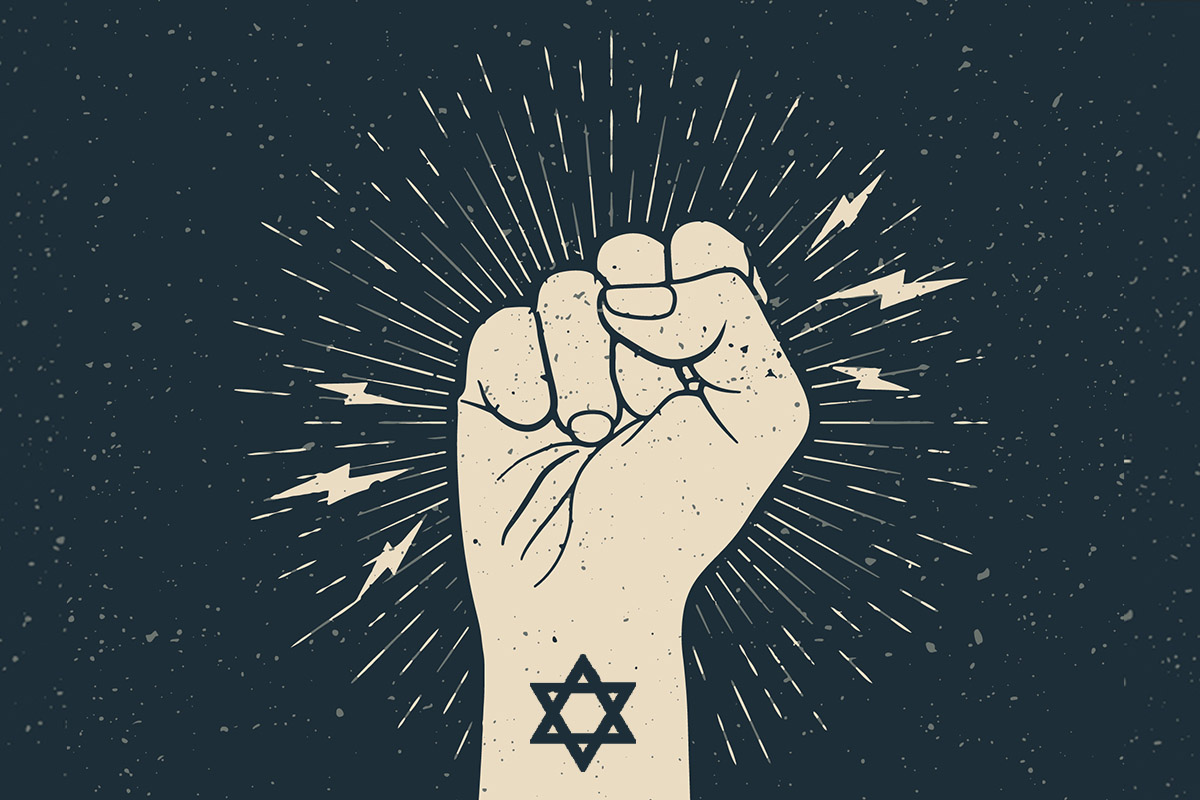At the end of February, I was venting to a friend about our shared frustrations with being the only two Jewish activists in our local community. We’ve both dealt with anti-Semitism from other activists, have had to had repeated discussions with other activists about why their favorite political figures are anti-Semitic, and have had people derail us to ask Judaism 101 questions when we are just trying to get things done.
So I had an idea: Instead of kvetching into the void, why not teach a class on Judaism geared towards progressive activists? I put a syllabus together with class expectations, curriculum outlines, and a reading list at work and reached out to activists in my community to invite them to join. I asked for a suggested donation to help compensate for the time spent preparing lessons and teaching.
I did get some pushback when I announced the class. An acquaintance bombarded my friend and co-organizer with questions. Why would we be discussing left-wing anti-Semitism? Didn’t we realize that anti-Semitism comes from right-wing fascists? Were we aware of how horrible conditions are for Palestinians in Gaza? My friend patiently answered her questions, emphasizing that indeed, all of this would be covered in the course material. She decided not to take the class.
I found that one of the biggest challenges of being an organizer is that allies show up en masse when there’s a crisis, but only a few stick around to do the work long-term. Many friends came to our community candlelight vigil after the Tree of Life shooting, or posted messages of support on their social media feeds, but few expressed interest in the class, and even fewer showed up. In the end, I had four students meeting at my friend’s apartment every Shabbat afternoon for eight weeks. As disappointing as that number was, I tried to stay focused on making sure those four people had the best experience possible.
Each week I assigned different readings and started class with a different anti-Semitic pitfall I have encountered in activist spaces. Then we’d discuss whatever the weekly topic was. Classes covered everything from a basic overview of halakha (Jewish law), intersectionality from a Jewish perspective, how not to talk about the Holocaust, and the past, present, and future of Jewish activism. We also invited students to a Passover seder so they could experience Jewish religious and cultural rituals firsthand.
There were two classes that stressed me out the most: one on how social justice narratives about privilege and power fail to recognize anti-Semitism as a system of oppression, and the class on Israel and Zionism. These issues can be very polarizing, to say the least — would my students be able to listen and talk about these issues in a way that would lead to growth and understanding? Fortunately, students responded really positively, asked thoughtful questions, and said that they appreciated getting a Jewish perspective on these issues. As it turns out, when you take discourse about anti-Semitism and Israel offline, foster relationships with other activists, and have these discussions in person, people are much more prone to listen and learn.
I also had students attend services at the local Reform and Conservative synagogues so they could experience what different prayer services were like, and to meet other members of the Jewish community. My students, who all grew up in conservative West Michigan Christian culture, all remarked at how welcoming the synagogues were, and enjoyed the services despite not knowing any Hebrew.
Teaching the class helped alleviate some of the burnout and cynicism I experience as a Jewish activist. There are non-Jews who are interested in learning more about Judaism, who want to learn how to effectively fight anti-Semitism, and we need to help them get connected to ways they can advocate for the Jewish community.
At the end of the last class, I had everyone create action plans on how they would take what they learned and apply it in their activism. Students mentioned being more proactive about ensuring events didn’t conflict with Jewish holidays, reaching out and calling in other activists who’ve made anti-Semitic comments in the past, being more proactive about reaching out to other Jewish activists, and working to support the local Jewish community. According to Sarah, one of the participants, “I think my biggest takeaway is having the tools to understand how to better identify and respond to both overt and covert hostility toward Jewish people better. And having more confidence doing that. I’m still working on that confidence but I feel like I know how to stand up to that more now.”



